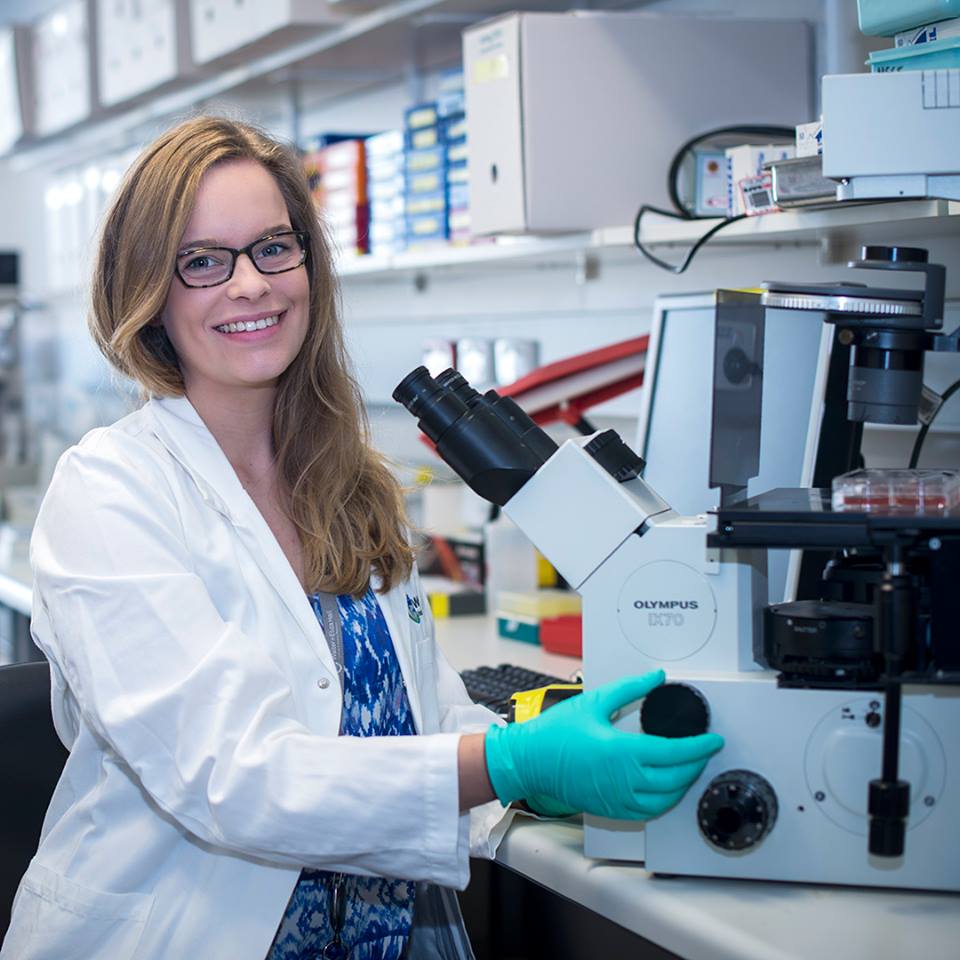
How Genetic Mutations Interplay with Blood Cancer
A PhD Scholar funded by Australian Rotary Health has researched how genetic mutations may lead to the development of blood cancer and what makes this type of cancer more aggressive.
Erin Lawrence from the Walter & Eliza Hall Institute of Medical Research was awarded a District 9650 All Stars PhD Scholarship from Australian Rotary Health from 2017-2020 for her project: ‘Investigating novel genes and mutations in haematological malignancies.’
For the past three years, Erin has been studying the genetic causes of blood cancers and has examined blood cells that carry one of the most common genetic mutations found in human cancers.
Erin said her research has shown that pre-cancerous blood cells accumulate in the blood and bone marrow prior to the development of cancer.
“The cells that accumulate are called pre-cancerous because they behave abnormally compared to healthy cells but are not behaving as a cancer cell either. I have shown that pre-cancerous blood cells are more likely to accumulate in the blood and bone marrow and are also less likely to correctly produce other more mature blood cells types compared to healthy cells. Over time, these pre-cancerous cells develop further genetic mutations which cause them to become cancerous,” Erin said.
Using a number of model systems, Erin was able to show that a common cancer-causing mutation in a gene called DNMT3a cooperates with other genetic mutations to cause more aggressive blood cancers than one of these mutations alone.
“I showed that the mutation in DNMT3a disrupts normal cell signaling pathways and distorts them to favour the development of cancer.”
Another interesting aspect of Erin’s research has been to uncover how multiple genetic mutations can alter the course of cancer.
“My PhD research revealed that normal regulation of the DNA is essential for tumour suppression. I showed that defects in DNA methylation could accelerate blood cancer latency and cooperate with other cancer driving mutations to drive aggressive forms of blood cancer,” Erin said.
In addition to this, abnormal DNA methylation was found to alter the response of pre-cancerous cells to stress signals.
“The abnormal response to these stress signals caused an incomplete stress response and resulted in the rapid onset of blood cancer,” Erin said.
Erin’s PhD thesis was submitted in May 2020 and she expects her findings to be published by the end of this year.
Media contact: [email protected] – (02) 8837 1900
Republished 28th May 2024 with new Media link (30th April 2025): https://bit.ly/4jFUuiC
